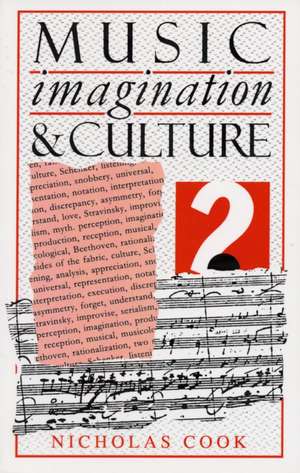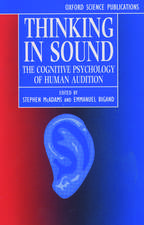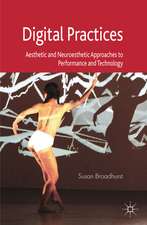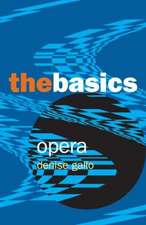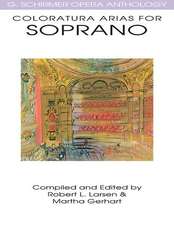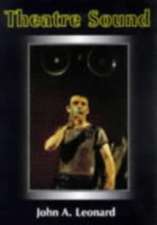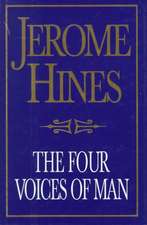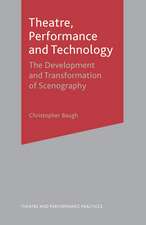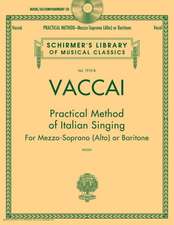Music, Imagination, and Culture
Nicholas Cooken Limba Engleză Paperback – 23 ian 1992
Preț: 525.28 lei
Preț vechi: 755.08 lei
-30% Nou
Puncte Express: 788
Preț estimativ în valută:
100.52€ • 105.70$ • 83.05£
100.52€ • 105.70$ • 83.05£
Carte tipărită la comandă
Livrare economică 07-12 aprilie
Preluare comenzi: 021 569.72.76
Specificații
ISBN-13: 9780198163039
ISBN-10: 0198163037
Pagini: 272
Ilustrații: numerous music examples
Dimensiuni: 137 x 217 x 16 mm
Greutate: 0.35 kg
Editura: Clarendon Press
Colecția Clarendon Press
Locul publicării:Oxford, United Kingdom
ISBN-10: 0198163037
Pagini: 272
Ilustrații: numerous music examples
Dimensiuni: 137 x 217 x 16 mm
Greutate: 0.35 kg
Editura: Clarendon Press
Colecția Clarendon Press
Locul publicării:Oxford, United Kingdom
Recenzii
`This is a bold and ambitious book. What he fundamentally has to say is not hard to grasp, and is very important and highly contentious.'Michael Tanner, Times Literary Supplement
`This is a fascinating, learned, and provocative book ... It will start a debate amongst musical theorists which will continue over many years.'Anthony Storr
`thought-provoking study of musical imagination ... he can also offer fascinating insights into the performance and perception of music from contrasting periods and cultures.'Music Journal
'excellent ... Cook writes urbanely, with disarming good humour, and in a style ideally suited to the exercise of common sense ... He is intelligent, perceptive, illuminating - yet scarcely incendiary. Cook has given us an extremely suggestive sketch of the terrain; and he has written a book - full of stimulating detail - which is certain to challenge, and to reward, its readers.'Aaron Ridley, Ithaca College, New York, British Journal for the Philosophy of Science
`I want to urge anyone interested in musical aesthetics to read it. The book is written with passion, with intelligence, and with deep understanding of music ... a source of information to us about what the musical psychologists are doing these days.'Journal of Aesthetics and Art Criticism
'It is well conceived and clearly written, uses quotations effectively, and synthesizes a great deal of specialized research for the general reader. Cook's demonstration of the ways in which musicians conceive of music, imagine it, recall it, even read it: these all provide challenges to any lazy habits of thought that we might have.'Kofi Agawu, Cornell University, Journal of the Royal Musical Association
'one need not always agree with Cook in order to find the book extremely stimulating ... It is well conceived and clearly written, uses quotations effectively, and synthesizes a great deal of specialized research for the general reader.'Kofi Agawu, Cornell University, Journal of the Royal Musical Association, Volume 117, No. 1, 1992
'thought-provoking study of musical imagination ... The author is extremely well-read ... If at times he appears to take tortuous routes to simple truths, he can also offer fascinating insights into the performance and perception of music from contrasting periods and cultures.'Tom Messenger, Music Journal
'This book offers much to think about .... it is heartening to find a text that takes on the thorny debate of musical aesthetics and engages the reader in some solid thinking on music and ways it can be defined. Considering musical aesthetics' position as the basis of music education, Cook's text provides ample opportunity for debate and thought.'Peter Dunbar-Hall, International Journal of Music Education
`This is a fascinating, learned, and provocative book ... It will start a debate amongst musical theorists which will continue over many years.'Anthony Storr
`thought-provoking study of musical imagination ... he can also offer fascinating insights into the performance and perception of music from contrasting periods and cultures.'Music Journal
'excellent ... Cook writes urbanely, with disarming good humour, and in a style ideally suited to the exercise of common sense ... He is intelligent, perceptive, illuminating - yet scarcely incendiary. Cook has given us an extremely suggestive sketch of the terrain; and he has written a book - full of stimulating detail - which is certain to challenge, and to reward, its readers.'Aaron Ridley, Ithaca College, New York, British Journal for the Philosophy of Science
`I want to urge anyone interested in musical aesthetics to read it. The book is written with passion, with intelligence, and with deep understanding of music ... a source of information to us about what the musical psychologists are doing these days.'Journal of Aesthetics and Art Criticism
'It is well conceived and clearly written, uses quotations effectively, and synthesizes a great deal of specialized research for the general reader. Cook's demonstration of the ways in which musicians conceive of music, imagine it, recall it, even read it: these all provide challenges to any lazy habits of thought that we might have.'Kofi Agawu, Cornell University, Journal of the Royal Musical Association
'one need not always agree with Cook in order to find the book extremely stimulating ... It is well conceived and clearly written, uses quotations effectively, and synthesizes a great deal of specialized research for the general reader.'Kofi Agawu, Cornell University, Journal of the Royal Musical Association, Volume 117, No. 1, 1992
'thought-provoking study of musical imagination ... The author is extremely well-read ... If at times he appears to take tortuous routes to simple truths, he can also offer fascinating insights into the performance and perception of music from contrasting periods and cultures.'Tom Messenger, Music Journal
'This book offers much to think about .... it is heartening to find a text that takes on the thorny debate of musical aesthetics and engages the reader in some solid thinking on music and ways it can be defined. Considering musical aesthetics' position as the basis of music education, Cook's text provides ample opportunity for debate and thought.'Peter Dunbar-Hall, International Journal of Music Education
